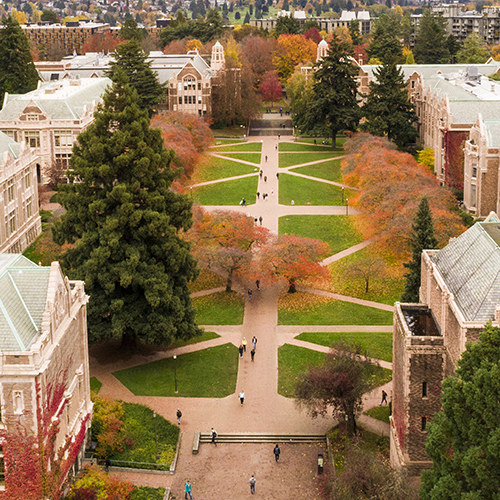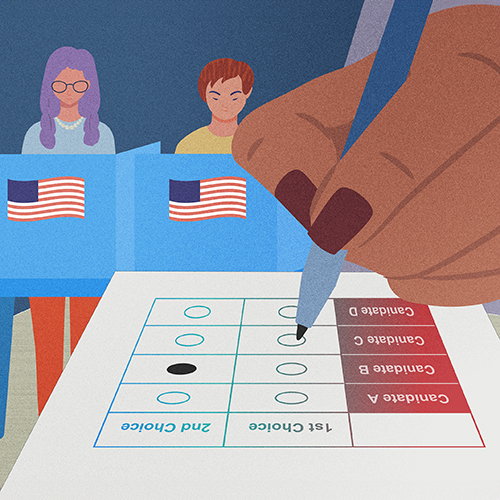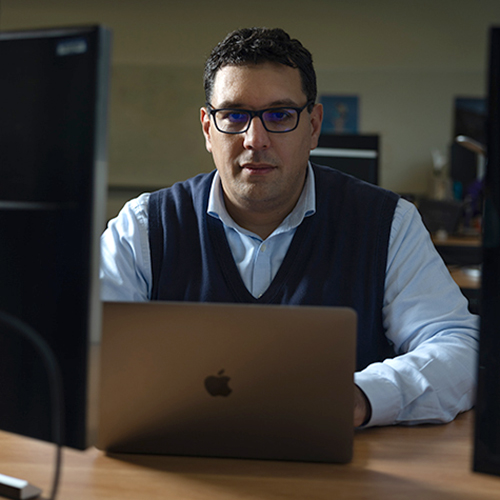If time management were an Olympic sport, Megan Kufeld would surely earn the gold medal. During her time at the UW, biology major Kufeld juggled academics, research in the laboratory of pharmacology professor Edith Wang, and the demanding role of goalie on the Husky women’s soccer team — plus two years as team captain. She was the UW’s Sophomore Presidential Medalist as well as Academic All-American of the Year and Academic All-American 1st Team in NCAA Division I women’s soccer. In June, Kufeld earned another honor: Dean's Medalist in the Natural Sciences. The College of Arts & Sciences awards the Dean's Medal to one exceptional graduating senior in each of its four divisions.
“Megan is truly unique, being the most gifted, organized, and hard-working student that I have had the pleasure of interacting with during my time at the University of Washington,” says Wang. Adds UW women’s soccer coach Amy Griffin, “People on the outside have been made aware of her leadership qualities by what she does on game day as a high level goalkeeper in the Pac 12. However, her teammates will tell you that what makes her a good leader is that she is the first to help when needed, whether it be pumping up balls, speaking in front of a group of children, or telling a teammate they were great at practice. Megan is all in, all of the time.”

Below, Kufeld answers eight questions about her UW experience:
What aspect of biology intrigues you the most?
The molecular foundation of life — all of the signals, interactions, and processes that occur at the molecular level within individual cells and between all the cells of a body in order for life to exist and thrive.
You worked in a faculty research laboratory for two years. How did that enhance your academics?
Working in lab is incredible, including the opportunity to experience firsthand the “scientific method” that we only read about or briefly experience in courses. Additionally, I was able to use a great deal of what I learned in class — from research techniques to the foundational science governing every molecular event — in my lab work. I have learned, practiced, and now feel confident in many molecular, cellular, and biochemical research skills.
What advice can you offer other student athletes juggling academics, athletics, and other commitments?

While it can be challenging to balance multiple commitments, I think it is very doable. What really helped me was always having a plan, managing my time, and not allowing myself to stray from my plan. Even if possible distractions or excuses came up, those were not as important as my desire to put my best towards my academics and athletics. So in terms of advice, I would say prioritize your commitments and then make a plan for dividing your time between these commitments. When other things come up, remind yourself what is most important to you!
What’s one thing you wish you’d known when you started at the UW?
How fast it really goes by! Take advantage of and enjoy the opportunity to be at such an amazing place.
Is there one opportunity you had at the UW that you feel set you on your current path?
The opportunity to work in the Wang Lab, experiencing research and learning that I enjoy it, has allowed me to feel confident in pursuing a career in research.
Did you take courses outside of your major that surprised you?
Yes! Through the Interdisciplinary Honors Program curriculum, I was able to take many unique courses beyond the field of biology. I took a course on the political capacity of making textile art; the ideology of human rights movements; the enactment of leadership; issues of social justice within urbanization; the expansive response to oil spills; global climate change; a health seminar on aspects of college life; the social, moral, and political context of education and schooling; and ancient architecture. These were all great experiences that challenged me, expanding the breadth and perspective of my education.
What’s the campus spot you’ll miss the most, and why?
It's a tie between 1) the view walking through campus on a sunny day from the Quad through Red Square to the fountain, seeing Mt. Rainier in the distance — because in those moments I couldn’t help but notice the beauty and feel happy; and 2) the soccer field/athletic department, because it’s where I spent so much of my time, the source of so many lifelong memories and friendships, and instills such a strong sense of pride, unity, and inspiration in being a Husky!
What’s next for you?
Currently I am living out a lifelong dream by playing professional soccer in the second division in Sweden! I hope to advance to higher levels in upcoming seasons. Post-soccer, I envision attending graduate school and pursuing a career in molecular and cellular biology research, potentially in the biomedical/biotech field.
More Stories

A Nobel, an Inventor, a Polymath & More
Recent awards and appointments celebrate Arts & Sciences faculty and staff for their research, leadership, and more.

Democracy by the Numbers
Mathematics and Democracy, an undergraduate mathematics course, explores the role of math in many aspects of democracy, from elections to proportional representation.

A Statistician Weighs in on AI
Statistics professor Zaid Harchaoui, working at the intersection of statistics and computing, explores what AI models do well, where they fall short, and why.